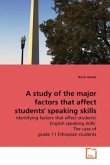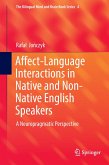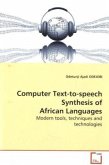As technology and human-computer interaction
advances, there is an increased interest in affective
computing. One of the current challenges in
computational speech and text processing is
addressing affective and expressive meaning, an area
that has received fairly sparse attention in
linguistics. Linguistic investigation in this area is
motivated both by the need for scientific study of
subjective language phenomena, and by useful
applications such as expressive text-to-speech
synthesis. This work makes contributions to the study
of affect and language, by describing a novel data
resource, outlining models and challenges for
exploring affect in language, applying computational
methods toward this problem with included empirical
results, and suggesting paths for further research.
The book should be particularly valuable for readers
interested in language and affect, socioemotive
aspects of language, subjective language phenomena,
and computational semantics.
advances, there is an increased interest in affective
computing. One of the current challenges in
computational speech and text processing is
addressing affective and expressive meaning, an area
that has received fairly sparse attention in
linguistics. Linguistic investigation in this area is
motivated both by the need for scientific study of
subjective language phenomena, and by useful
applications such as expressive text-to-speech
synthesis. This work makes contributions to the study
of affect and language, by describing a novel data
resource, outlining models and challenges for
exploring affect in language, applying computational
methods toward this problem with included empirical
results, and suggesting paths for further research.
The book should be particularly valuable for readers
interested in language and affect, socioemotive
aspects of language, subjective language phenomena,
and computational semantics.








